Studio Ghibli Animated Films in Release Order
Studio Ghibli is one of the most respected animation studios in the world. Founded by Hayao Miyazaki, Isao Takahata, and Toshio Suzuki in 1985, the studio became known for its compelling narratives, memorable characters, and detailed animation. Over the decades, it has released numerous films that have captivated audiences of all ages.
Check out the complete list of Studio Ghibli animated films in release order!
Castle in the Sky (1986)
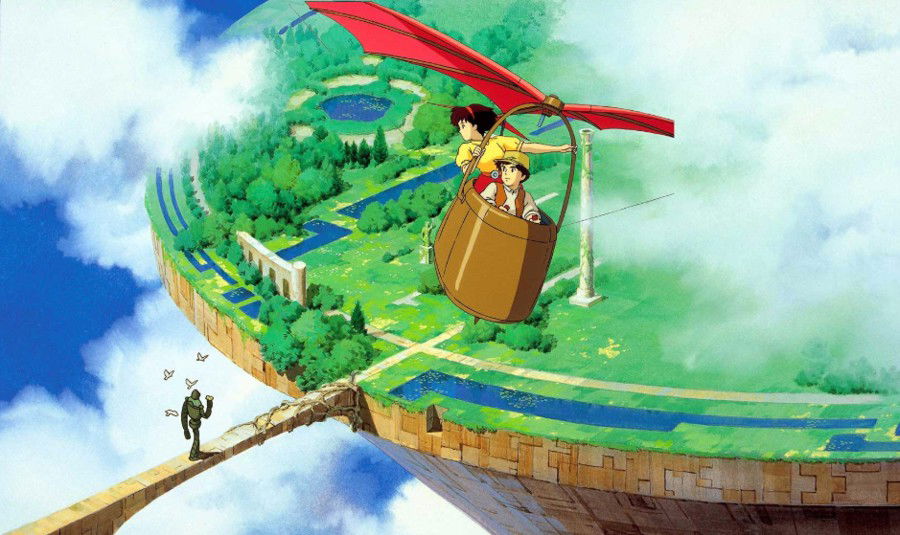
A fantasy and science fiction adventure directed by Hayao Miyazaki. The story follows Pazu and Sheeta, two children searching for the legendary floating city of Laputa while fleeing from sky pirates and government agents.
This was the first film officially produced by Studio Ghibli and established many recurring themes in the studio’s works, such as technology, nature, and the spirit of adventure.
My Neighbor Totoro (1988)
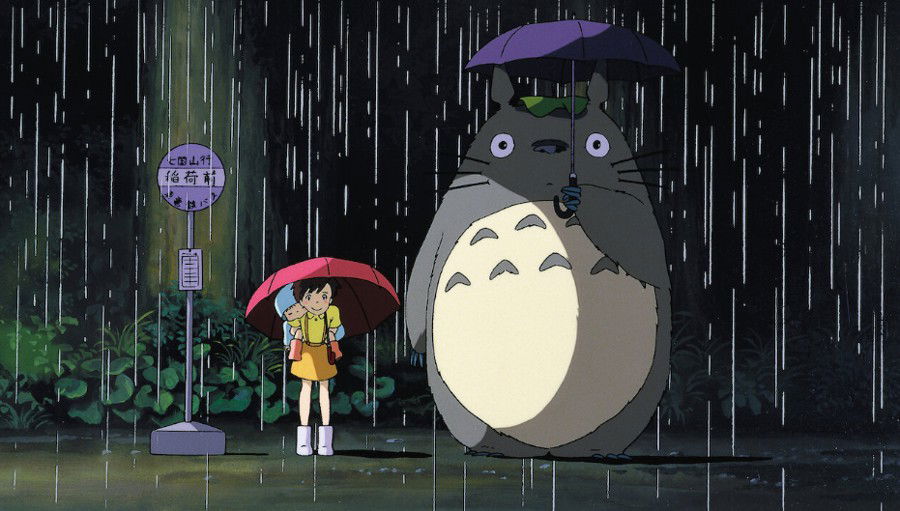
Directed by Hayao Miyazaki, the film follows two sisters, Satsuki and Mei, who move to the Japanese countryside and discover mysterious creatures, including the friendly Totoro.
With a more contemplative approach focused on childhood experiences, this film became one of the studio’s most iconic works and solidified Totoro as Ghibli’s mascot.
Grave of the Fireflies (1988)
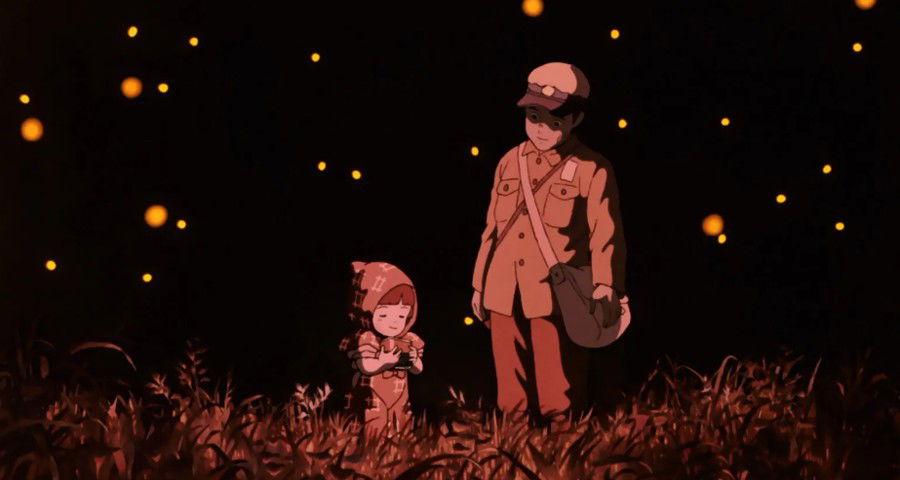
Directed by Isao Takahata, this is one of the studio’s most dramatic films. The story follows two siblings, Seita and Setsuko, struggling to survive during the final days of World War II in Japan.
Considered one of the most emotional and impactful animated films ever made, it presents a sensitive portrayal of the consequences of war.
Kiki's Delivery Service (1989)
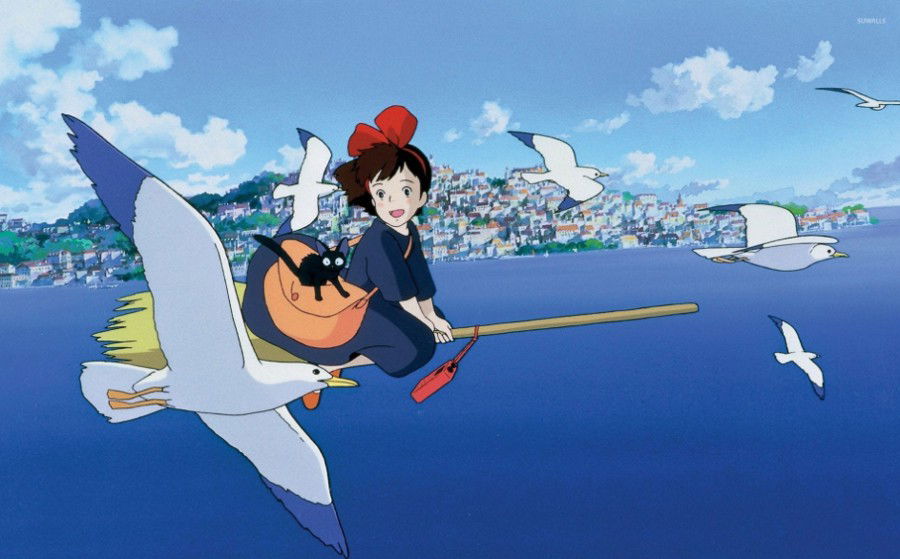
Another work by Hayao Miyazaki, the film follows Kiki, a young witch who, upon turning 13, must spend a year living alone in a new city. During this journey, she learns to become independent and find her place in the world.
The film has a light and optimistic atmosphere, exploring themes such as coming of age and self-discovery.
Only Yesterday (1991)
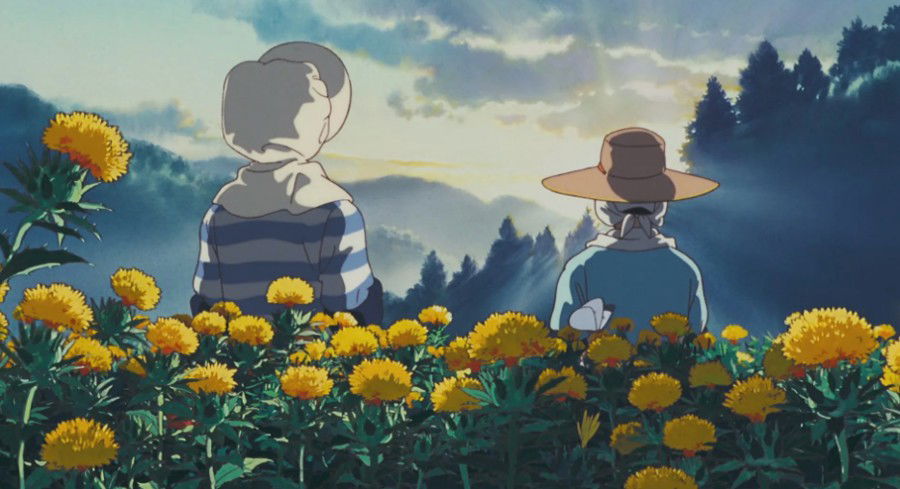
Directed by Isao Takahata, this film presents a more realistic narrative aimed at an adult audience. The story follows Taeko Okajima, a 27-year-old woman who reminisces about her childhood while traveling to the Japanese countryside.
The film explores themes such as nostalgia, life choices, and personal growth.
Porco Rosso (1992)
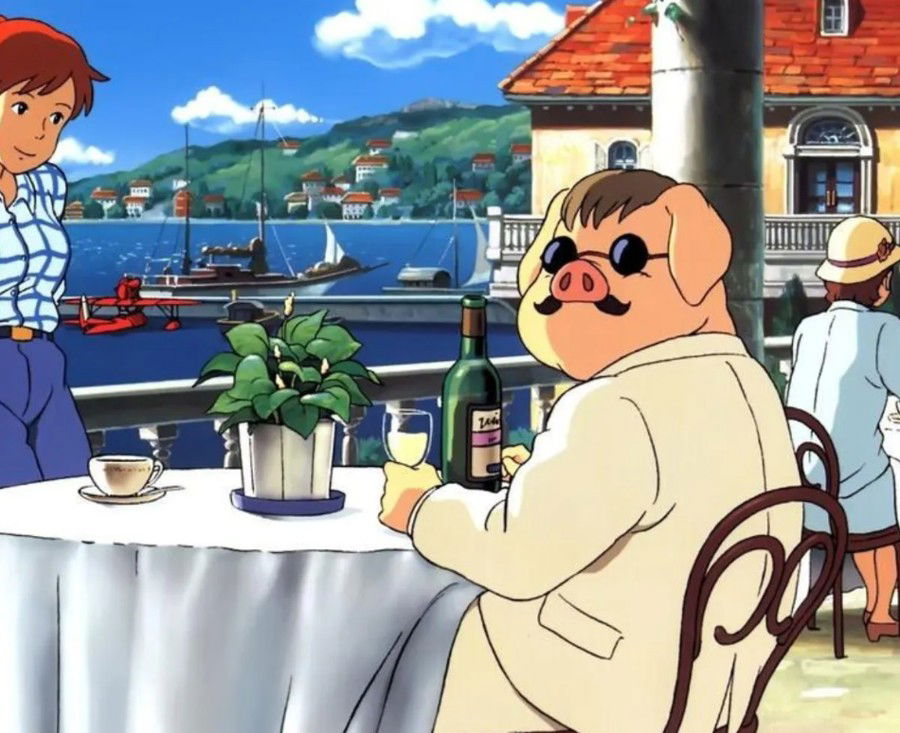
Directed by Hayao Miyazaki, the film is set in 1920s Italy and follows the story of an ace pilot who has been transformed into an anthropomorphic pig.
With strong inspiration from aviation and classic cinema, the film blends adventure, comedy, and reflections on war and identity.
Ocean Waves (1993)
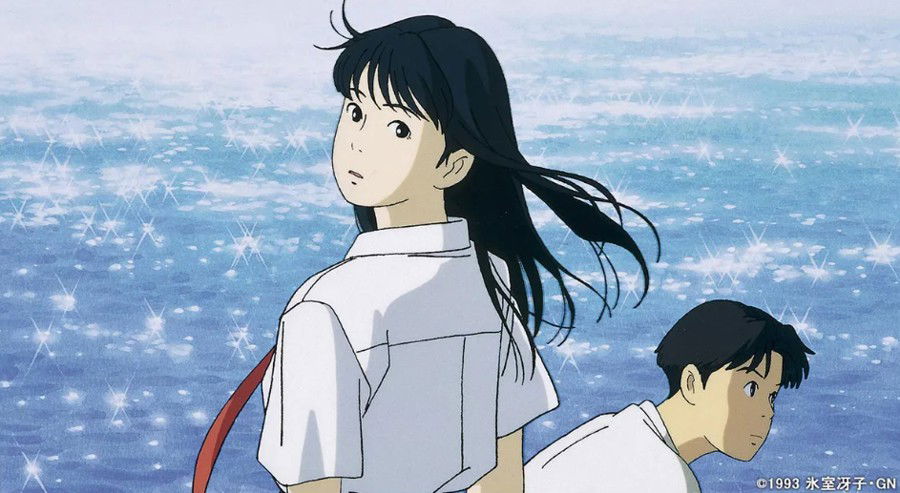
Produced by the younger team at Studio Ghibli and directed by Tomomi Mochizuki, this film has a more realistic tone and focuses on the coming-of-age journey of a group of teenagers. The story follows Taku Morisaki and his relationship with Rikako Muto, a transfer student who disrupts the dynamics of his friend group.
It is one of the few Ghibli films not directed by Miyazaki or Takahata.
Pom Poko (1994)
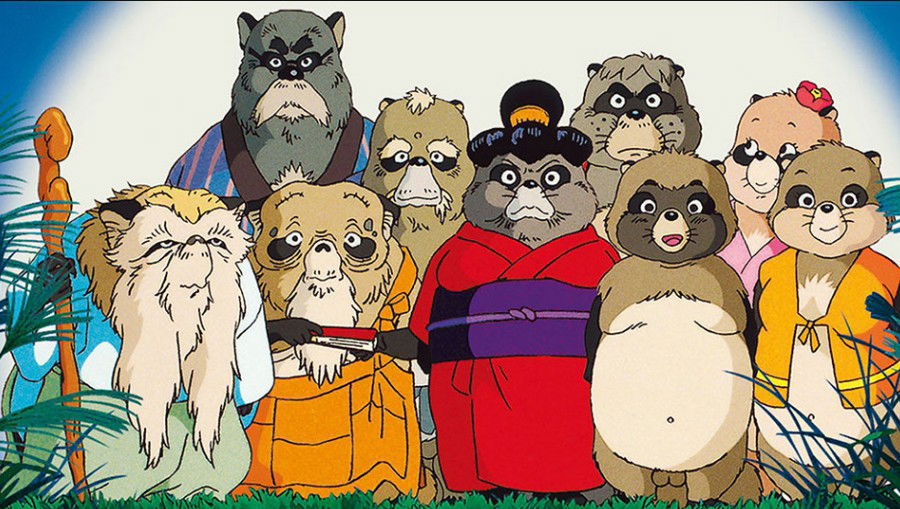
Directed by Isao Takahata, this film carries a strong ecological and folkloric message. It tells the story of a group of tanukis (creatures from Japanese folklore) who use their shapeshifting abilities to try to stop the destruction of their forest due to urbanization. The film blends comedy, action, and drama elements.
Whisper of the Heart (1995)
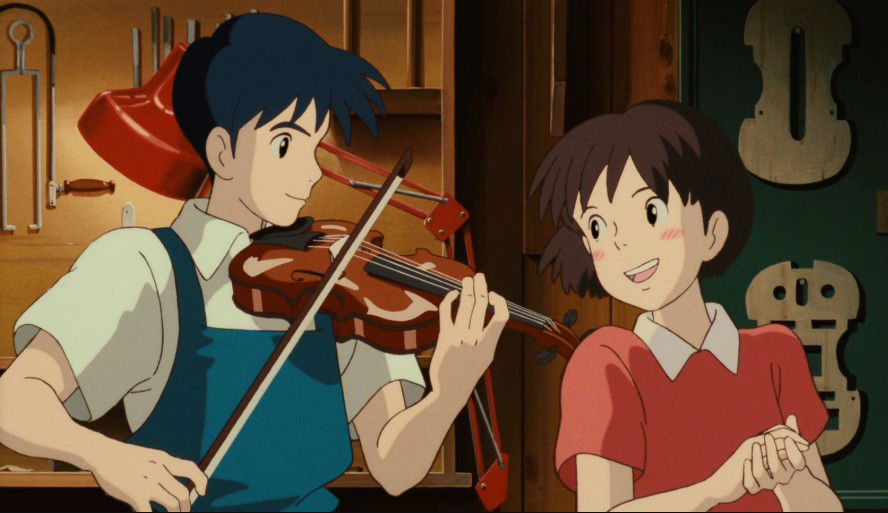
Directed by Yoshifumi Kondō and written by Hayao Miyazaki, this film presents a more intimate story about self-discovery and personal growth.
The protagonist, Shizuku, is a book-loving student who dreams of becoming a writer. The film explores her coming-of-age journey and her relationship with Seiji, a young aspiring violin maker.
Princess Mononoke (1997)
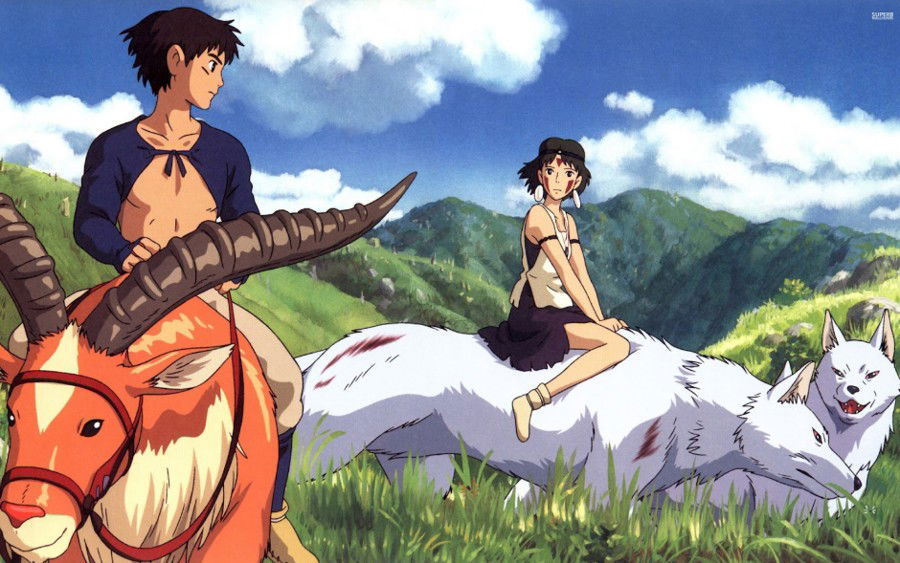
One of Hayao Miyazaki’s most ambitious productions, this film is set in Japan’s Muromachi period and presents an epic conflict between humans and forest spirits.
The protagonist, Ashitaka, seeks a way to end the war between Princess Mononoke and Lady Eboshi, who represents industrialization.
This film was a major box office success and further established Studio Ghibli’s international reputation.
My Neighbors the Yamadas (1999)
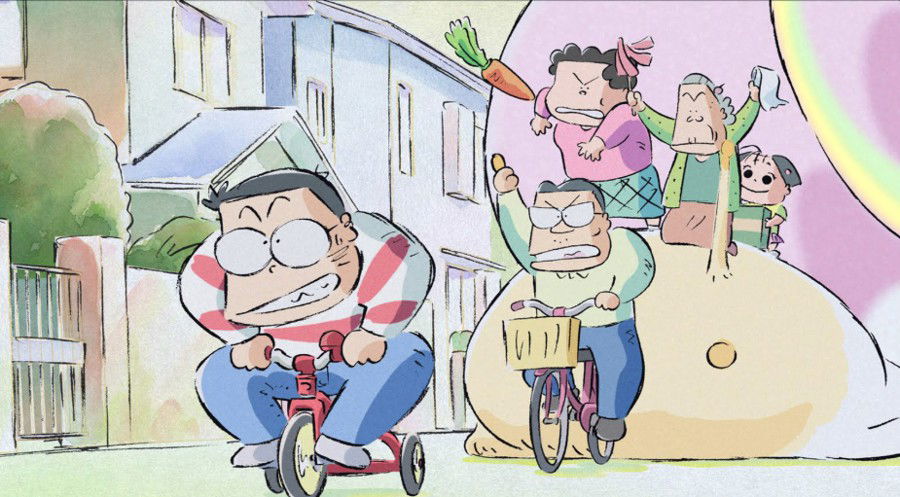
A lighthearted comedy that portrays the everyday life of a Japanese family in a simple and humorous way. With a visual style reminiscent of newspaper illustrations, the film presents small chronicles of daily life, showcasing the challenges and joys of family life.
Spirited Away (2001)
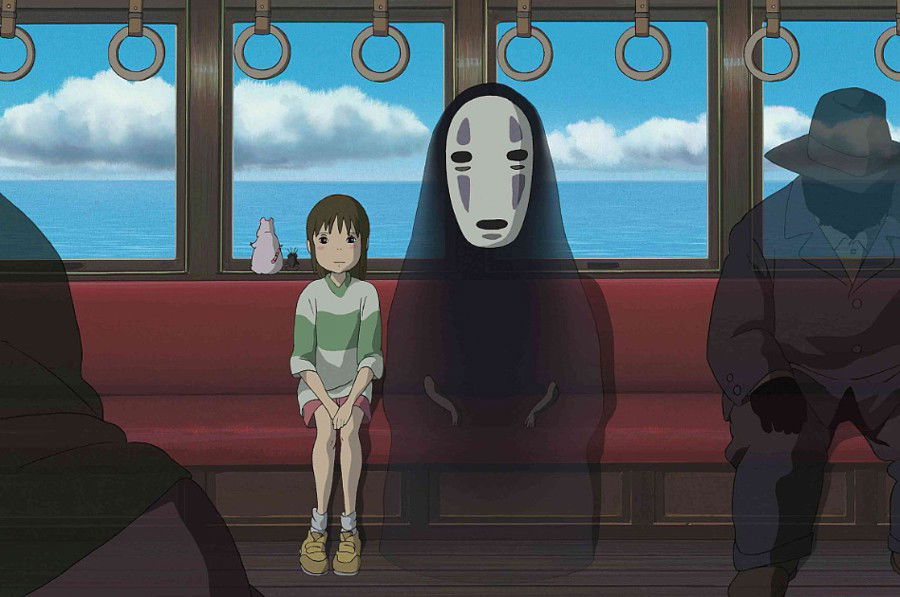
One of Studio Ghibli’s most renowned works and an Academy Award winner. Chihiro finds herself trapped in a world full of spirits and must find a way to rescue her parents, who have been transformed into pigs.
With stunning aesthetics and unforgettable characters, the film is a journey of growth and perseverance.
The Cat Returns (2002)
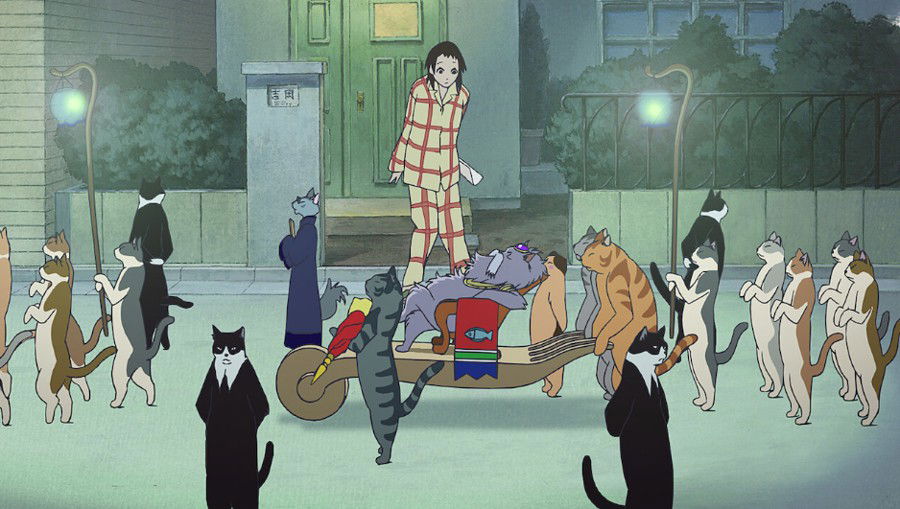
Haru is a young girl who, after saving a cat, receives an unexpected invitation to live in the feline world. There, she must decide whether to stay or return to her normal life. A lighthearted and fun story with charming characters and a touch of fantasy.
Howl's Moving Castle (2004)
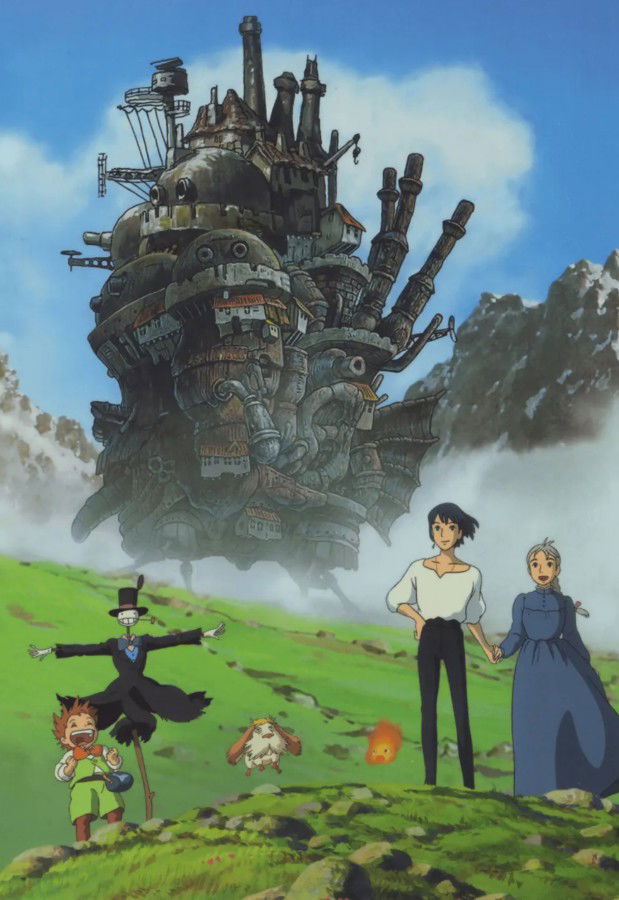
Sophie, cursed and transformed into an old woman, finds refuge in the moving castle of the mysterious wizard Howl.
The story blends magic, romance, and war in a visually stunning universe, accompanied by a memorable soundtrack.
Tales from Earthsea (2006)
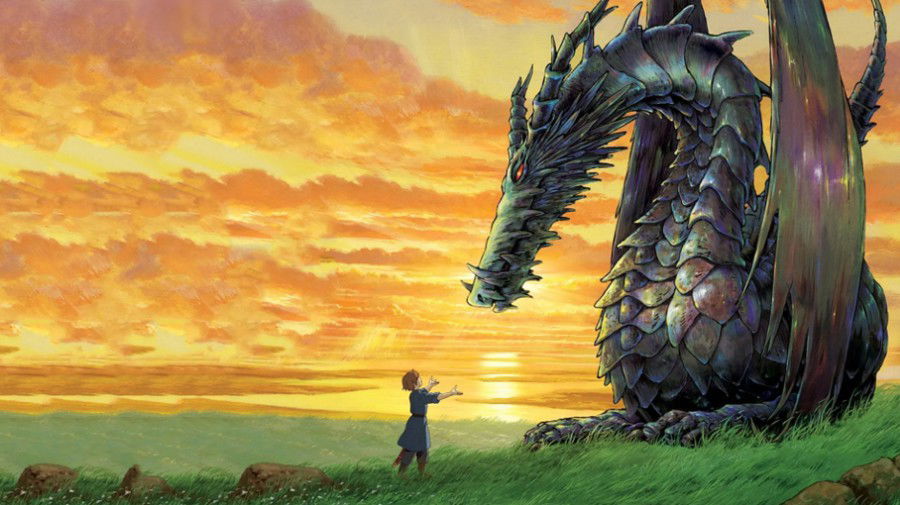
Based on the books by Ursula K. Le Guin, the film presents a world where magic and balance are central themes.
With a more introspective tone and a narrative that delves into internal struggles, this animation stands apart from the studio’s other productions.
Ponyo (2008)
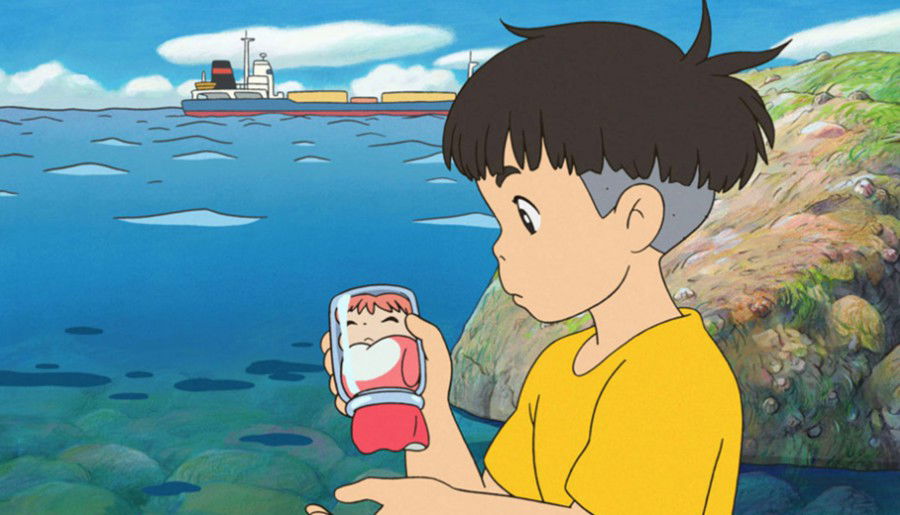
Ponyo, a small sea creature, wishes to become human after meeting a boy named Sôsuke.
The film features vibrant colors and a captivating tone, exploring the connection between childhood and nature with the studio’s signature charm.
The Secret World of Arrietty (2010)
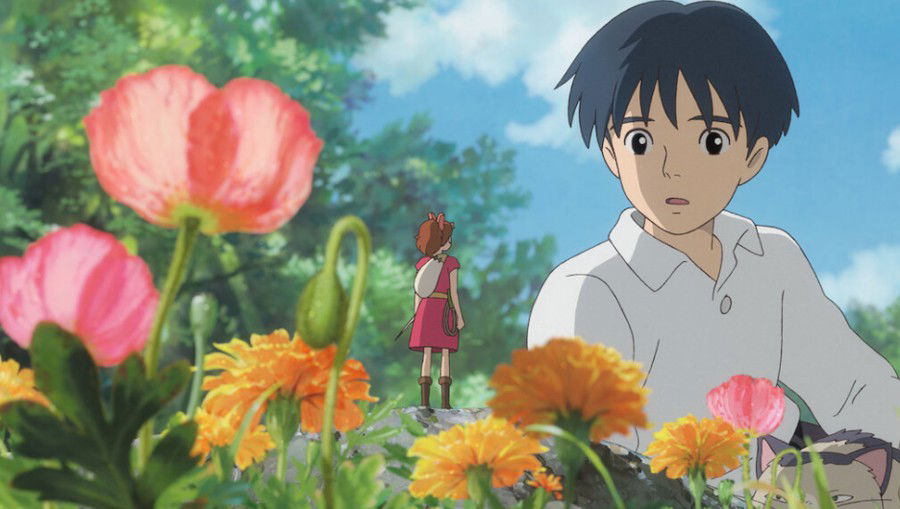
An adaptation of the classic The Borrowers, portraying the lives of tiny beings living hidden inside human homes.
The narrative conveys a sense of adventure and delicacy, showing the struggles of these small characters as they try to coexist in the human world.
From Up on Poppy Hill (2011)
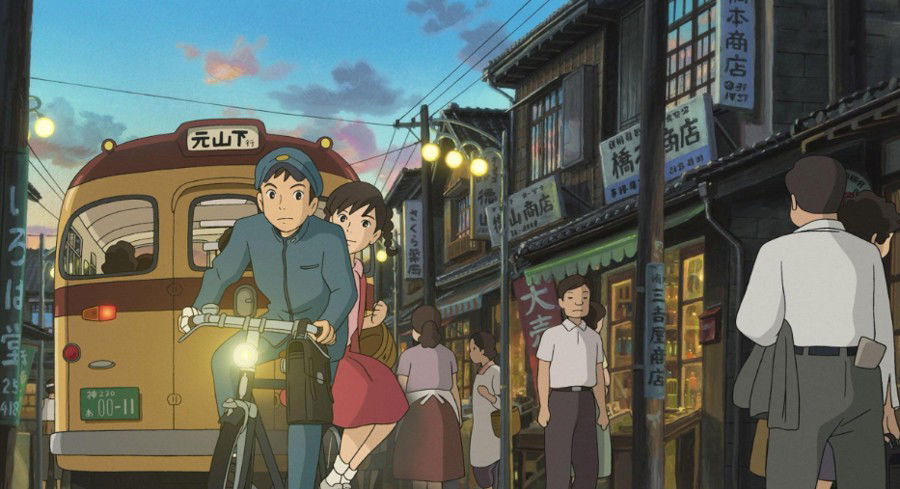
A romantic drama set in 1960s Japan, following two young people trying to save a school clubhouse. With a nostalgic atmosphere, the film sensitively explores themes of memory, identity, and social change.
The Wind Rises (2013)
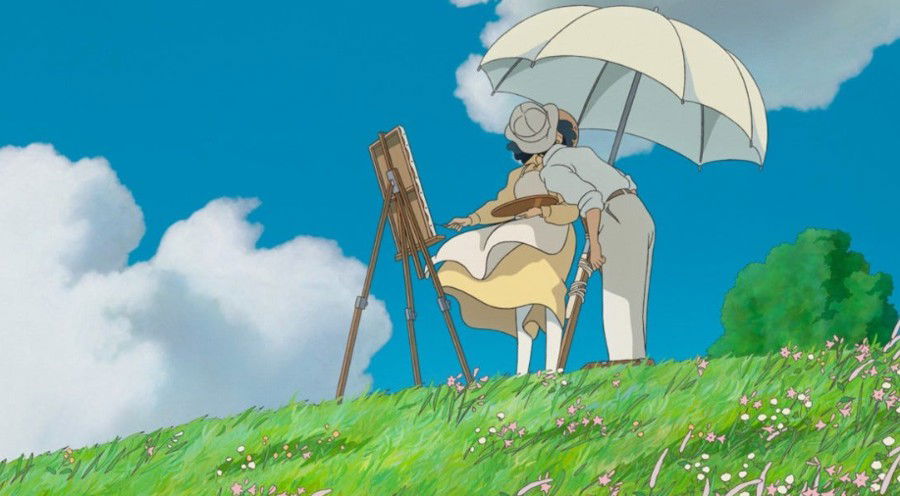
Inspired by the real-life story of Jiro Horikoshi, the engineer behind the Zero fighter plane, this historical drama reflects on dreams and responsibilities.
With a more realistic approach, it stands as one of Miyazaki’s most personal works.
The Tale of the Princess Kaguya (2013)
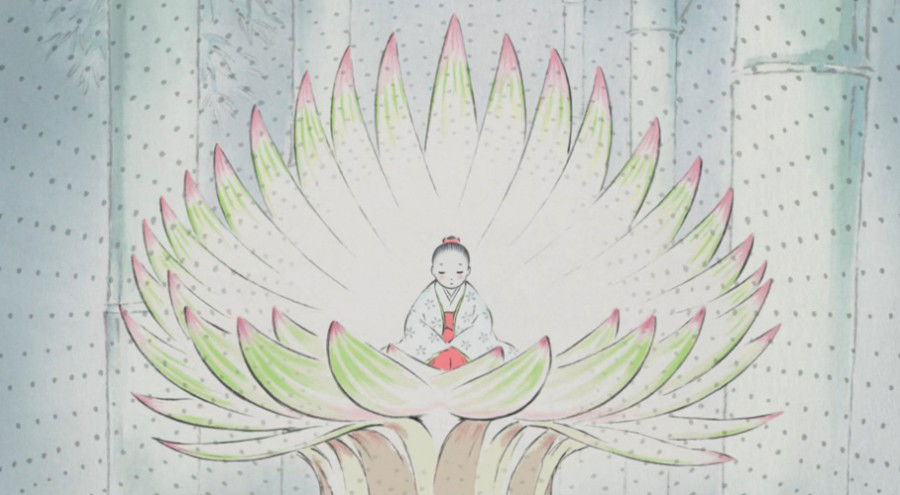
An adaptation of a Japanese folktale, featuring a visual style reminiscent of traditional paintings. The story of Princess Kaguya is told poetically and melancholically, making it one of the studio’s most artistic productions.
When Marnie Was There (2014)
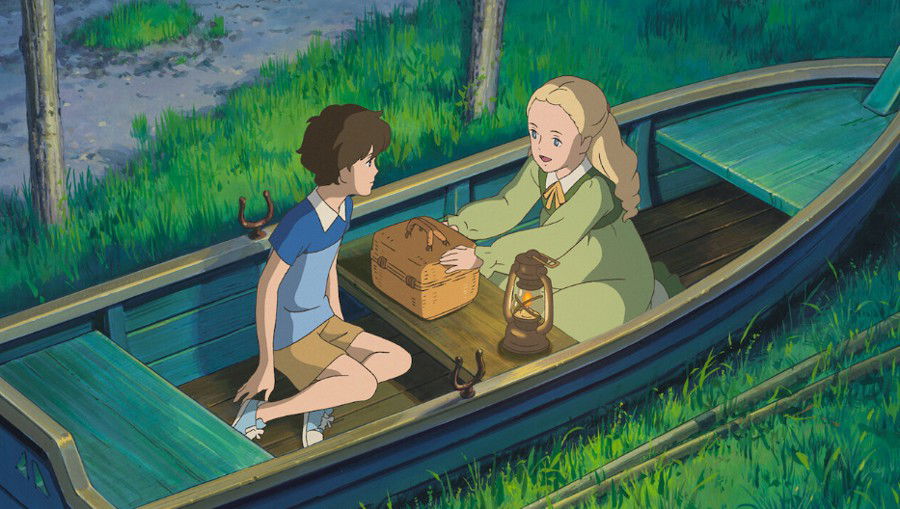
Anna, a lonely girl, meets Marnie, a mysterious girl who sparks questions about identity and family bonds.
The film carries a melancholic atmosphere and unfolds its mystery in an engaging way.
Earwig and the Witch (2020)
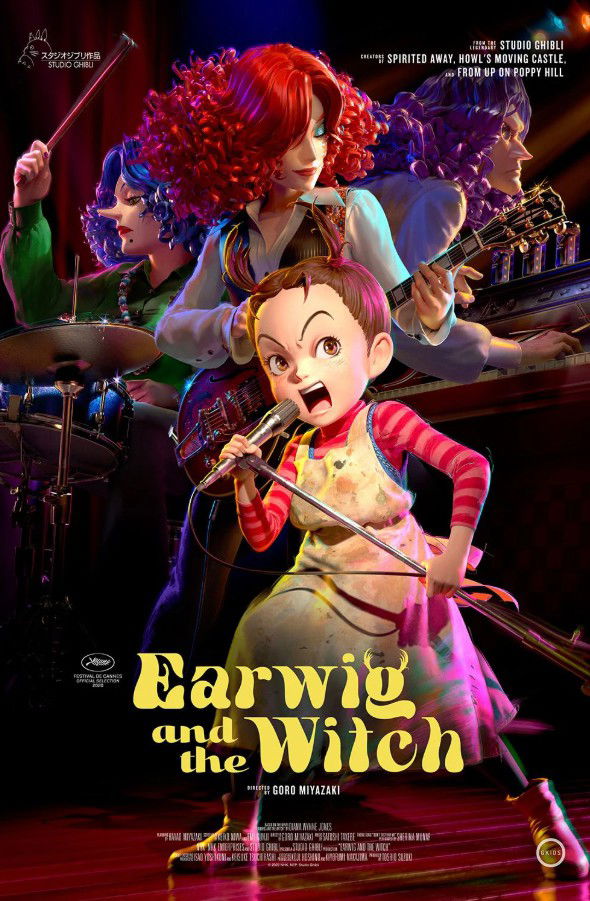
Studio Ghibli’s first CGI-animated film, telling the story of a clever girl who goes to live with a witch and discovers a magical world.
Despite the shift in visual style, it retains the studio’s signature elements.
The Boy and the Heron (2023)
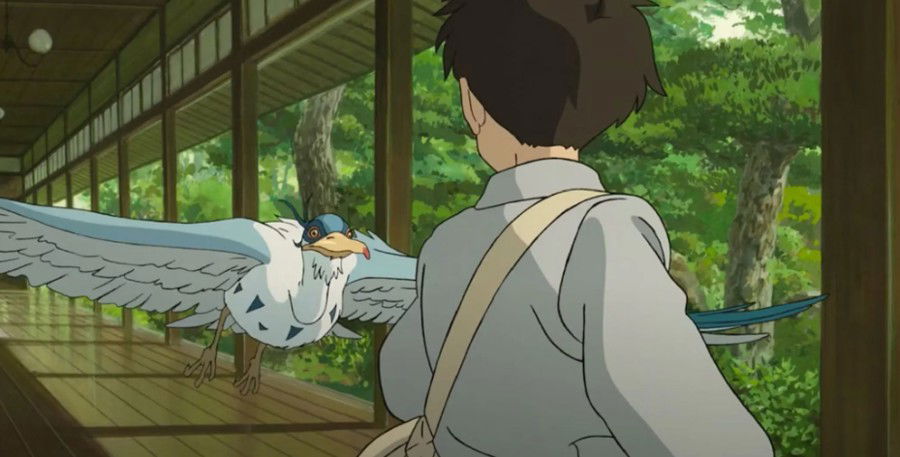
Miyazaki’s return with a film that blends surrealist and philosophical elements. It explores themes such as loss and coming-of-age while maintaining the studio’s artistic and reflective essence.
Conclusion
Studio Ghibli has built a unique legacy in animated cinema, telling stories that explore fantasy, emotion, and the beauty of everyday life. Its productions continue to captivate generations, whether through their heartfelt narratives or their unmistakable visual style.
Recently, a wave of AI-generated images inspired by Ghibli circulated online, reigniting fascination with the studio’s work and sparking discussions about the impact of technology on art.
In the end, Ghibli’s animations remain a benchmark, bringing wonder and reflection to audiences of all ages.
See you in the next article!







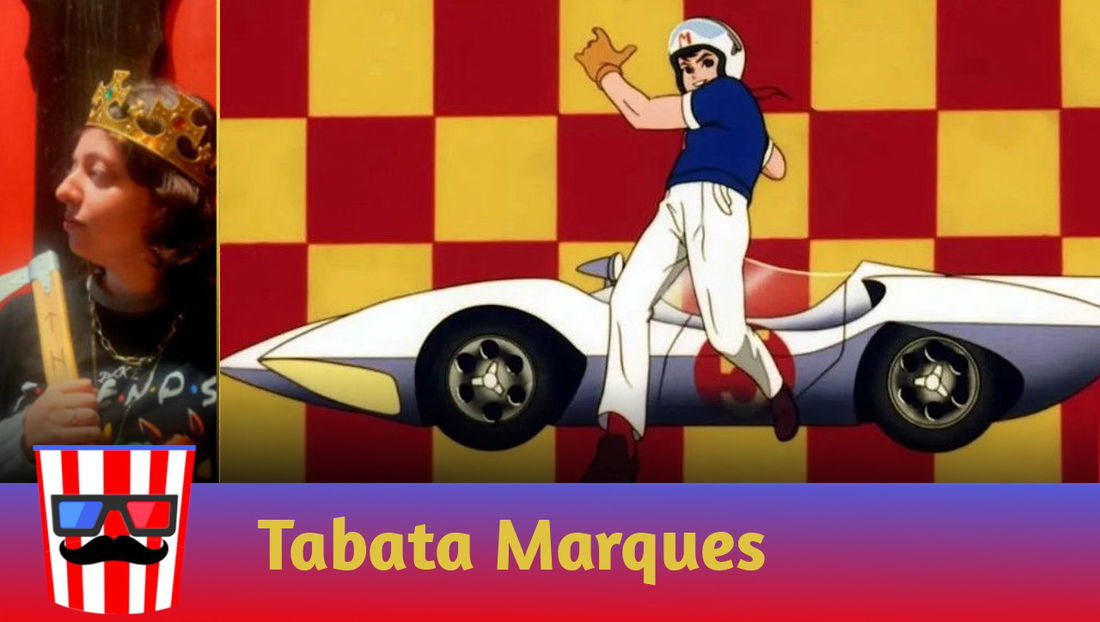




— コメント 0
, 反応 1
最初にコメントする